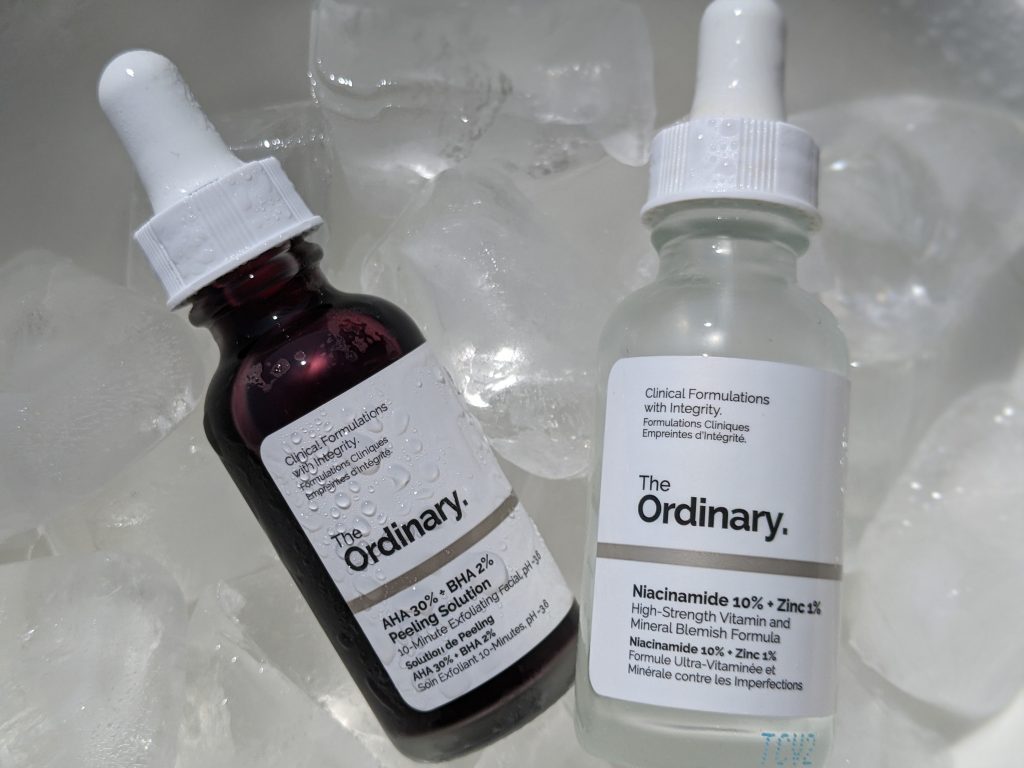
Photo by Mytam Le The brand “The Ordinary” does not use parabens in any of their products as a way of advertising and appealing to people who believe that parabens are dangerous. This has led them to use different preservatives like phenoxyethanol, which compared to parabens, does not have the same amount of research.
Five common misconceptions in skincare
As skincare becomes a booming business, false information spreads like wildfires. Many myths stem from misconceptions of how skin and certain ingredients work.
- Natural is always better.
Many “clean beauty” brands continuously use the words “natural” and “organic” in their marketing. However, their definitions are not regulated by the Food and Drug Administration (FDA), meaning that there is a different definition between each person and company. When focusing solely on “natural ingredients,” there is a tendency to believe beneficial ingredients such as petroleum jelly and benzoyl peroxide are harmful as they are not natural, even though they are highly recommended by dermatologists.
- Parabens cause cancer.
Due to the misinterpretation of research, consumers believe that parabens, a common preservative, mainly used in cosmetics like cleansers, are a toxic ingredient that can lead to cancer. Studies concluding that parabens lead to cancer have extremely weak evidence. In the research itself, parabens were injected under the animal’s skin at a high concentration, not the typical concentration used in cosmetics. Additionally, the FDA has partnered up with the industry-led Cosmetic Ingredient Review, where the conclusion was that parabens are not harmful to the body. Furthermore, as a result of the misconception that parabens are bad, many companies use less researched preservatives that may lead to increased damage to the skin’s barrier.
- People of color do not need sunscreen.
This myth stems from the belief that melanin, a pigment that causes darker skin tones, is a natural sunscreen. Melanin does have its benefits and research has shown that people with darker skin tones do have a lesser chance of getting skin cancer. However, melanin cannot, on its own, fully protect your skin from ultraviolet (UV) rays. There are two main types of UV rays, UVB and UVA. UVB has been linked to causing skin cancer such as melanoma, while UVA causes skin aging, which will lead to the worsening of acne and scars. Melanin provides little to no protection against UVB rays, and it cannot prevent UVA rays from harming your skin. Thus, it is important to wear sunscreen, either mineral or chemical, everyday.
- Acne is caused by poor hygiene.
Although hygiene does come into play with acne, such as not washing one’s face daily, most severe acne cases are due to hormonal changes. This is mainly because of puberty or when a woman is going through menstruation, as well as environmental stressors. For example, if one were to live in an area where there are many cars and air pollutants, their acne would most likely flare up. Overall, acne itself has multiple causes and being unhygienic is merely one of the reasons.
- The more products used, the better.
With trends such as the 10-step Korean skincare routine, many people tend to overwhelm their skin with active ingredients leading to skin irritatation. One does not want to deprive their skin of spectacular ingredients such as niacinamide, an ingredient that has been shown to help control oil production and minimize redness on the skin. However, using too many cleansers, moisturizers, or serums containing niacinamide can aggravate the skin. Therefore, having a simple skincare routine on a daily basis will be safe and equally beneficial.
In an age of social media and consumerism, misinformation about skincare is plentiful. However, that should not discourage anyone from expanding their knowledge about the importance of skincare.
(This article is not providing medical advice. If you are experiencing any irritation or skin concerns, please visit your dermatologist or family doctor.)